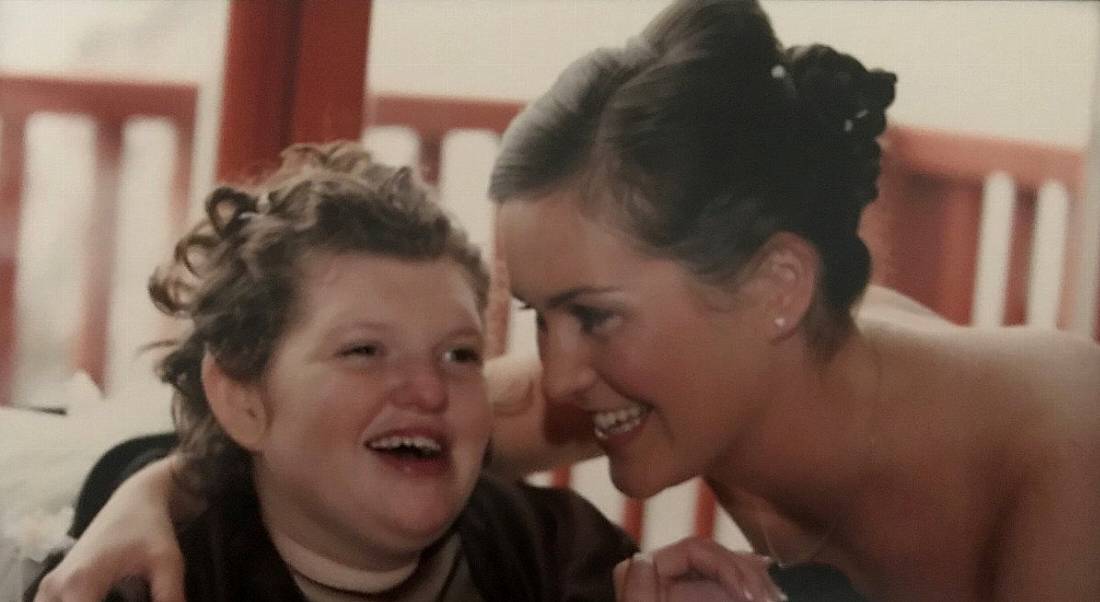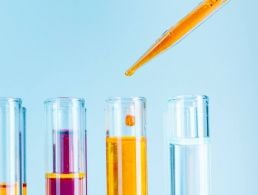Dr Jackie Dolan discusses her career and how her passion for genomics began after her sister was born with a rare neurological condition.
Yesterday (25 April) was World DNA Day. Each year, this event aims to offer students, teachers and the public an opportunity to learn about the latest advances in genomic research.
Here, geneticist Dr Jackie Dolan discusses the importance of World DNA Day to the industry and how she was inspired to pursue a career in this area, ultimately becoming director of research programmes at Genuity Science.
‘I started being very curious about how our bodies are made and how they work’
– JACKIE DOLAN
Why is World DNA Day important to people working in genomics?
It is great to commemorate two major milestones in the field of genetics: the completion of the Human Genome Project in 2003 and the discovery of DNA’s double helix in 1953. Both of these milestones advanced genetics research considerably.
I have always been inspired by Rosalind Franklin’s story and her contribution to the double helix discovery back in a time when it was not expected or encouraged for women to even to attend university.
Do events like World DNA Day help encourage other people to enter the field?
Definitely. It’s not a day-to-day observable career such as a doctor, police officer or teacher, so providing accessible information on genetics and possible careers in the field is very important for both students and their teachers.
Marking and celebrating scientific achievements in this way not only heightens awareness, but can be an inspiration for a lot of young people to see how far we’ve come and the possibilities that exist in science.
What made you want to pursue a career in the field?
My sister was born with a very rare and severe neurological condition when I was eight years old. It made me acutely aware from a young age that unfortunately, we are not always born the same. I started being very curious about how our bodies are made and how they work.
My interest grew the more I started to learn about our genes and how even small changes in our DNA can cause or contribute to many different diseases and disorders.
What does your work usually involve?
As a member of the research team, our overall goal is to investigate the genetic factors underlying many different common diseases such as inflammatory bowel disease, multiple sclerosis and heart failure, among others.
Daily in my role I get to work with, and learn from, a large number of experts across the global company in areas such as computational biology, systems biology, molecular biology, clinical genetics, artificial intelligence and machine learning.
What’s your favourite thing about working in this area? Has there been one project that stood out in particular?
I love that every day is different and you don’t know where the research will take you. The potential to make a difference in people’s lives through our work is immense – the insights that we derive from our research can, for example, support the development of new drugs or new diagnostic tools or improve the safety and efficacy of clinical trials.
Working on the development of our rare disease research programme in conjunction with Temple Street Children’s Hospital, which is a free service Genuity Science provides, has been very gratifying. We support the diagnoses of children with rare diseases and, for obvious reasons, I have particularly enjoyed being a part of the programme. Having seen first-hand the difficulties and heartache that goes with having a loved one with an undiagnosed condition, it is something that I wouldn’t wish on any family.
A diagnosis is often elusive and can take years and some families never find the answers they’re looking for. A diagnosis can mean access to new or more appropriate treatments and a better understanding of what the future may hold for the child.
Are there different kinds of opportunities opening up today compared to when you began in the field?
There is so much happening in the field because it really is the coming together of biology and technology. We’re seeing a lot of opportunities in bioinformatics, artificial intelligence, machine learning and computational biology.
Genomics is one of the best use cases for big data, so cloud infrastructure and cloud engineers are really in demand. And of course, there’s always high demand for genetic counsellors and expertise in patient advocacy as well.
What advice would you give to people on starting a career in this industry?
Do your research! Investigate and reach out to people in the industry to ask questions. Science is about curiosity and seeking out answers, and examining potential careers in science is no different.




